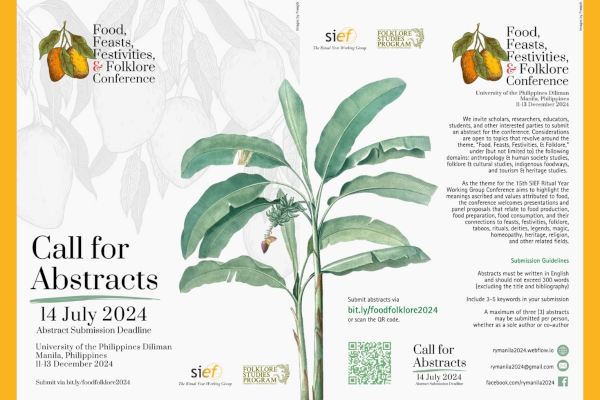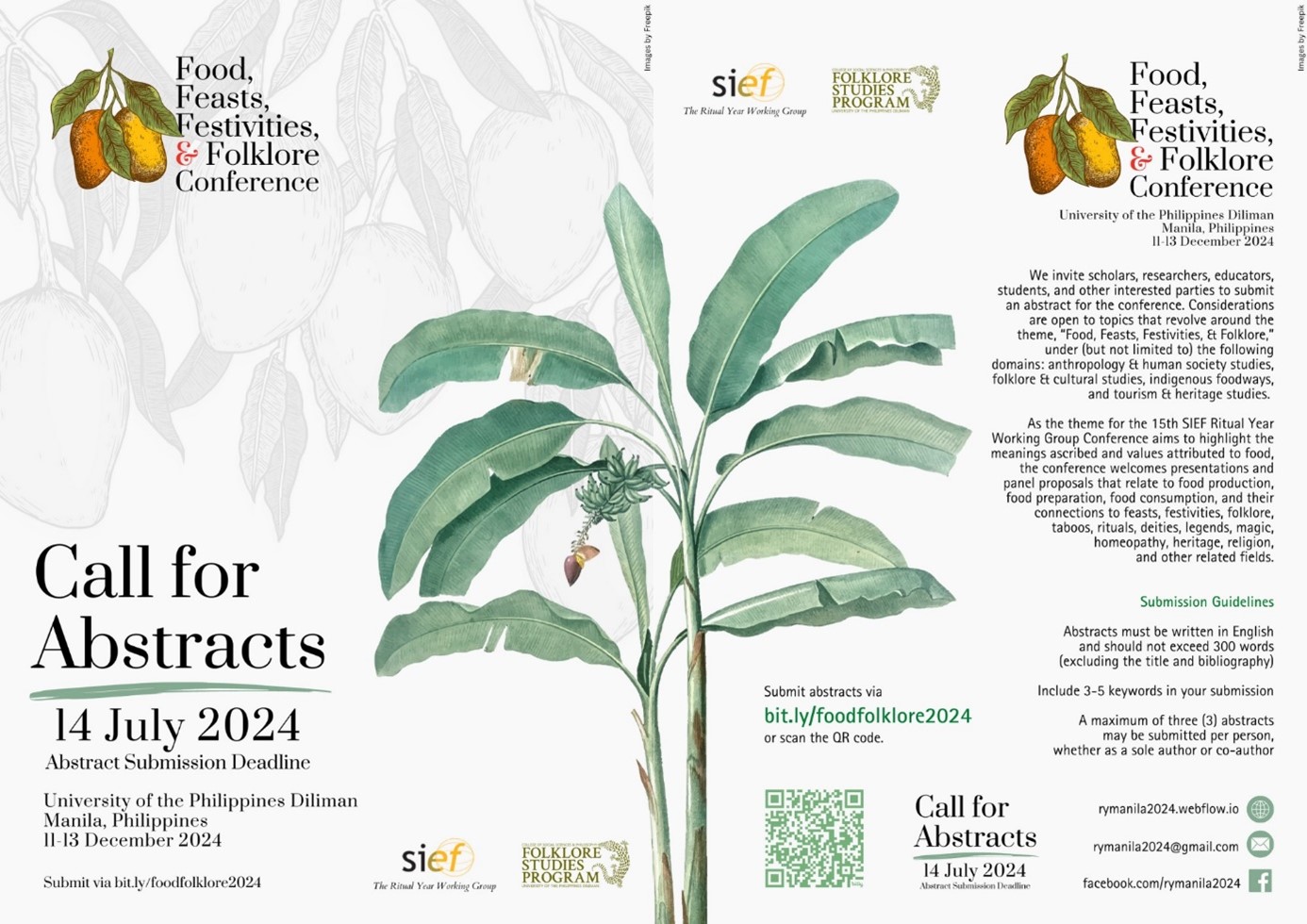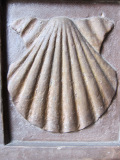
Working Group on The Ritual Year
The WG reflects on ongoing seasonal webinars, and shares a link to the online recordings. The WG also celebrates the own 20th year anniversary and the birthdays of the scholars Mare Kõiva and Jurij Fikfak. The WG announces a CfP for the Food, Feasts, Festivities and Folklore Conference – deadline July 14th.
The Ritual Year seasonal webinar continues
The 10th Ritual Year seasonal webinar
After a long break, our RY seasonal webinar series continued on 2 November 2023, in a hybrid format (online and at the Estonian Literary Museum, in Tartu). In tune with the season, the theme of the meeting was “Día de los Muertos in Mexico / Hingedepäev in Estonia”. Lisseth Pedroza Fuentes introduces the participants to the current festivities in Mexico and the various traditions they are built on (pagan, pre-Hispanic; catholic Hispanic, etc.), while Mare Kõiva and Reet Hiiemäe focused on the notion of the soul in Estonian folklore, customs and traditions in connection with the souls of the deceased and communication with the souls.
The meeting was moderated by Tõnno Jonuks.
The 11th Ritual Year seasonal webinar
We started the new year with yet another hybrid event from our RY seasonal webinar series, on 22 January 2024, on the theme of ”Christmas and New Year Celebrations in Catalonia and Belorussia”. The two speakers, Guillem Castañar and Anastasiya Fiadotava, visiting Research Fellows at the University of Tartu and the Estonian Literary Museum, introduced us to some winter customs of their homelands.
The meeting was moderated by Mare Kõiva.
The 12th Ritual Year seasonal webinar
Our spring webinar took place on 25 March 2024. The online event welcomed two speakers: Nikolay Kuznetsov introduced the audience to contemporary komi festivals, highlighting their connection to the local folklore, while Irina Sedakova, talked about rituals, feasts and folklore references in connection with the month of March, in Bulgaria.
The meeting was moderated by Mare Kõiva and Irina Stahl.
At the end, we had a brief anniversary moment, dedicated to Mare Kõiva and Irina Sedakova as well as to our WG, who celebrates this year 20 years of active existence.
The 13th Ritual Year seasonal webinar
In our second 2024 spring webinar, which took place on 11 April 2024, we welcomed Aleida Bertran, visiting lecturer at the Latvian Academy of Culture, who gave a talk on folk festivals in Latvia and Northern Catalonia (Eastern Pyrenees). In her presentation, the speaker compared the pathways of cultural nationalism in the two regions, since the 1950s, with the explicit goal of understanding the role of international postmodern folk festivals with a political agenda.
The meeting was organized in a hybrid format: online and at the Estonian Literary Museum (Tartu), and was moderated by Mare Kõiva.
Irina Stahl
Working Group celebrations
In 2024, “The Ritual Year” WG celebrates several anniversaries. First of all we mark 20 years from the foundation of our group according to the ideas and under the president-hood of Dr Emily Lyle. This event was in the program of the conference “As above so below: Explorations in myth and ritual throughout the world” hold in Edinburgh in April, 5-8.
We also celebrate the birthdays of two scholars who have been members of the WG since its creation:
Mare Kõiva (b. February 26, 1954) is a corresponding member of the Estonian Academy of Sciences, a member of Academia Europea, the Head of the Center of Excellence in Estonian Studies and the Editor-in-chief of the’ Folklore: Electronic Journal of Folklore’ (1996-) and Mäetagused (1996 -), The Yearbook of Balkan and Baltic Studies (2018-). Mare is a great scholar and an organizer of scholarly meetings and publications, she has taken part in, organized and hosted hundreds of conferences, congresses and round tables. In 2010, in Tallinn, she organized our WG’s (then yearly) 6th conference and afterwards publishes a great volume of the proceedings The Ritual Year 6. The Inner and the Outer (Tartu, ELM Scholarly Press, 2011). The array of Mare’s scientific interests is very vast. It comprises ritual calendar, incantations and folk healers, folk religion, the language of the Estonian diaspora, mythology and contemporary folklore.
Dr of Ethnology and cultural anthropology, Jurij Fikfak (b. April 17, 1954) is a research fellow at the Institute of Slovenian Ethnology of the Slovenian Academy of Sciences. The scope of his research interests is endless, he combines the traditional disciplines and methods with the new ones. Just to mention some of the areas of his studies: qualitative and discourse research, ritual practices, semiotics of culture, urban and rural anthropology, intangible cultural heritage. Jurij is an internationally acknowledged scholar, he participates in many projects dedicated the notion of border, entrepreneurship, ecology, images of heroes in their representation, etc. He edits the journals Traditiones and the series Opera ethnologica Slovenica. Being a very creative person, Jurij inputs into his studies a lot of innovative ideas.
In 2011, he was the chair of the organizing board for the 7th conference of the WG The Ritual year under the title Researchers, Performance, Researcher. Co-Designing Heritage, Co-Designing Performance. He edited a thematic issue of Traditiones (vol. 41, #1, 2012) and the volume The Interplay of Performances, Performers, Researchers, and Heritages (Yearbook of the Ritual Year. 7. Ljubljana, 2012, together with Laurent Sébastien Fournier) with the proceedings of this event.
We wish Mare and Jurij… and our working group, many more years to come!
The 15th Conference of the SIEF Ritual Year Working Group: Food, Feasts, Festivities, & Folklore
The 15th Conference of the Ritual Year Working Group (RYWG) will be held at the University of the Philippines in Diliman, Quezon City, the Philippines from December 11-13, 2024.
For the conference, RYWG partners with the Folklore Studies Program of the College of Social Sciences & Philosophy of the University of the Philippines Diliman.
The theme revolves around the importance and meaning of food. The conference aims to highlight the centrality of gustatory experiences and gastronomical practices in various ethnolinguistic groups around the world. Papers that relate to food production, food preparation, food consumption, and their connection to feasts, festivities, folklore, taboos, rituals, deities, legends, magic, homeopathy, heritage, and religion, among other things are welcome at the conference. The target date of the conference is on December 11-13, 2024. The conference will be composed of paper presentations, exhibits of heritage food items, demonstrations, and kwentuhan with food culture bearers.
Call for abstracts
We invite scholars, researchers, educators, students, and other interested parties to submit an abstract for the conference. Considerations are open to topics that revolve around the theme, “Food, Feasts, Festivities, & Folklore,” under (but not limited to) the following domains: anthropology & human society studies, folklore & cultural studies, indigenous foodways, and tourism & heritage studies. As the theme aims to highlight the meanings ascribed and values attributed to food, the conference welcomes presentations and panel proposals that relate to food production, food preparation, food consumption, and their connections to feasts, festivities, folklore, taboos, rituals, deities, legends, magic, homeopathy, heritage, religion, and other related fields.
Submission instructions
- Abstracts should be submitted in English
- Should not exceed 300 words (excluding the title and list of references)
- The name of the author/s must not appear on the abstract
- Include 3-5 keywords
- A maximum of 3 abstracts may be submitted per person, whether as a sole author or co-author
Important Dates
- Conference Date
December 11-13, 2024 - Abstract Submission Deadline
July 14, 2024
Submit an abstract: Google forms





